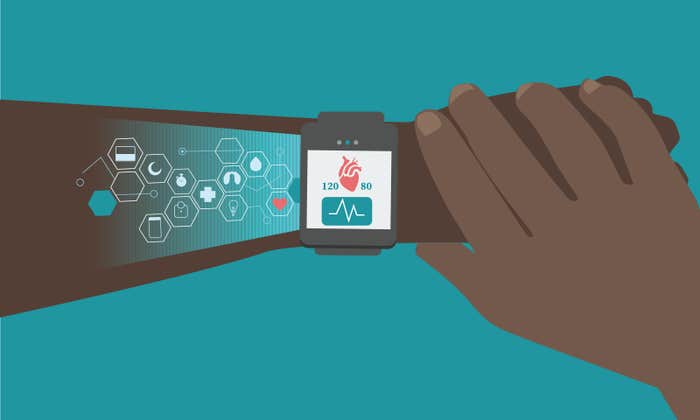
A new virus sweeps the world, closing borders, shutting down arts and sports, and killing thousands of people. Is this coronavirus pandemic, with the disease named Covid-19, simply a natural disaster, a culling of overpopulation as suggested by callous commentators who seem to revel in human misery? Is it nature’s rebuttal to human-caused climate change, forcing us to reduce fossil fuel-based transportation and overconsumption (apart from toilet paper)? The answer is neither. As with almost all disasters, the Covid-19 disaster is the outcome of human choices.
The Earth, with its microorganisms, tectonic activity, powerful weather, and other phenomena, has long posed dangers to humans. We know this, so it is up to us to deal with it. Sometimes we manage and sometimes we do not. Sometimes we are forced into situations with few choices, such as impoverished people living on the slopes of Mexico City’s volcano or in the subsiding floodplains of Jakarta. Not everyone can or should be a planner or engineer, to avoid houses built on soils prone to liquefying in an earthquake or offices lacking basic seismic reinforcement. Sometimes, we need to trust the zoning regulations and building codes—and their monitoring and enforcement—to keep us safe. Too often, gaps are revealed only after people have died, from the collapse of the CTV Building in Christchurch, New Zealand, during the 2011 earthquake, to New Orleans flooding during Hurricane Katrina in 2005. Those who suffer most, from Australia’s 2020 bushfires to Haiti’s 2010 earthquake, tend to have the fewest options for countering their vulnerabilities which were created by others.
We know that, by disturbing ecosystems, we make pandemics beyond Covid-19 more likely to occur.
When we are vulnerable to nature, it is because societal actions set people up to be harmed by nature. As we cannot blame nature for disasters, we should avoid the phrase “natural disaster.” They are just “disasters.” It could be shoddily built infrastructure, breaking or not having planning regulations, not being able to afford or not having insurance, poor communication of warnings, or fearing assault in an evacuation shelter. It is the same with disease.
The World Health Organization of the United Nations was lambasted for being far too slow to observe and respond to what became the largest Ebola epidemic yet known, in West Africa between 2014 and 2016. In the years before, donor countries to the WHO had slashed the funds available, particularly hitting the division responsible for surveilling, monitoring, preparing for, and responding to possible epidemics. Experienced staff departed, communication lines to health systems around the world slackened, and institutional memory faded. Not that the UN’s organizations are perfect otherwise, displaying their own operational failings alongside geographic and cultural biases. Plus, many of the Ebola-struck countries—for instance, Guinea, Liberia, and Sierra Leone—have long lacked adequate health systems, with the governments mired in corruption, conflict, external exploitation, and incompetence. Deficient local, national, and international governance for epidemics meant that Ebola spread far faster and farther afield than it would have if health systems had been supported. A further illustration comes from infected people ending up in the United Kingdom and the United States, yet neither country experienced an Ebola outbreak nor was there ever a pandemic. When it was decided that the spread of Ebola should be stopped, knowledge, resources, and actions were harnessed to stop the spread of Ebola. Earlier choices in West Africa, especially long-term backing for health systems, would have curtailed the disease far sooner.
And so we come to Covid-19. When a strange form of pneumonia appeared in patients in Wuhan, China in December 2019, medical staff reported it and soon identified the origin in one market. They isolated the new virus and publicly announced its genetic sequence. Authorities gave assurances that transmission between humans was not possible and that the virus was under control, despite evidence that neither was the case. Medical staff in Wuhan noticing the sickness explained that they were not permitted to broadcast their knowledge about it. Ai Fen, an emergency department doctor, was reprimanded and told to keep quiet. An ophthalmologist, Li Wenliang, was intimidated and silenced. He eventually died of coronavirus, with the media adorning him with the poignant label of “whistle blower.”
It is a choice to institute what is now referred to as a “cover up” when a potential public health threat emerges. It is a choice not to listen to health professionals hired in key positions when they are trying to save lives through public health measures. It is a choice to have opaque dissemination procedures and to try to shut down information flow. Now that the pandemic has been created by choices early on, it is a choice that many others are making to panic-buy soap while others are not bothering to wash their hands properly or to stop touching their food or face with unwashed hands. So much of disease is about human behavior. This in no way diminishes the importance of the essential medical responses. Without vaccines, smallpox, polio, rinderpest, measles, mumps, and a whole host of other lethal diseases would continue to run rampant. Along with antibiotics and other pharmaceuticals, vaccines not only save lives daily, but also reduce the costs of running health systems by stopping illness.
Health systems must have technologies and tools—dialysis machines, isolation wards, defibrillators, and stents within the dizzying array—but must not stop at technical means and buildings. Any health system must be underpinned by people, training, and experience—exactly what many of the authorities disdained when people in Wuhan suddenly fell ill. Earlier choices in China might have curtailed the spread of Covid-19 before it morphed into a pandemic. Even basic hygiene when dealing with animals might have prevented the virus from jumping species to humans.
Today, diseases targeted for eradication include rubella, measles, dracunculiasis (Guinea worm disease), and polio. The latter two remain endemic in conflict zones, often reappearing due to war, like polio did in 2013, in Syria, where it had disappeared a decade previously. Similarly, dracunculiasis is close to being eradicated, stubbornly remaining in areas wracked by violence including Chad and South Sudan. Choices to target these diseases are nonetheless preventing epidemics of them, with eradication in sight. London and Paris famously eliminated cholera in the 19th century by building sewage systems, among other actions. Malaria used to be prevalent in southern England and across the US. Dedicated efforts eradicated it and continue to prevent its re-introduction, despite cases from travelers and near international airports. We can continue these efforts by choice or we can let malaria return.
We know that, by disturbing ecosystems, we make pandemics beyond Covid-19 more likely to occur. “In Africa, we see a lot of incursion driven by oil or mineral extraction in areas that typically had few human populations,” Dennis Carroll, an infectious disease researcher, told Nautilus editor Kevin Berger. “The problem is not only moving workers and establishing camps in these domains, but building roads that allow for even more movement of populations. Roads also allow for the movement of wildlife animals, which may be part of a food trade, to make their way into urban settlements. All these dramatic changes increase the potential spread of infection.” It is no mystery why pandemics happen. Those with the knowledge, wisdom, and resources must choose to decide to avoid these disasters that afflict everyone.
Ilan Kelman is Professor of Disasters and Health at University College London and the author of Disaster By Choice: How Our Actions Turn Natural Hazards into Catastrophes. Follow him on Twitter/Instagram @IlanKelman.
























